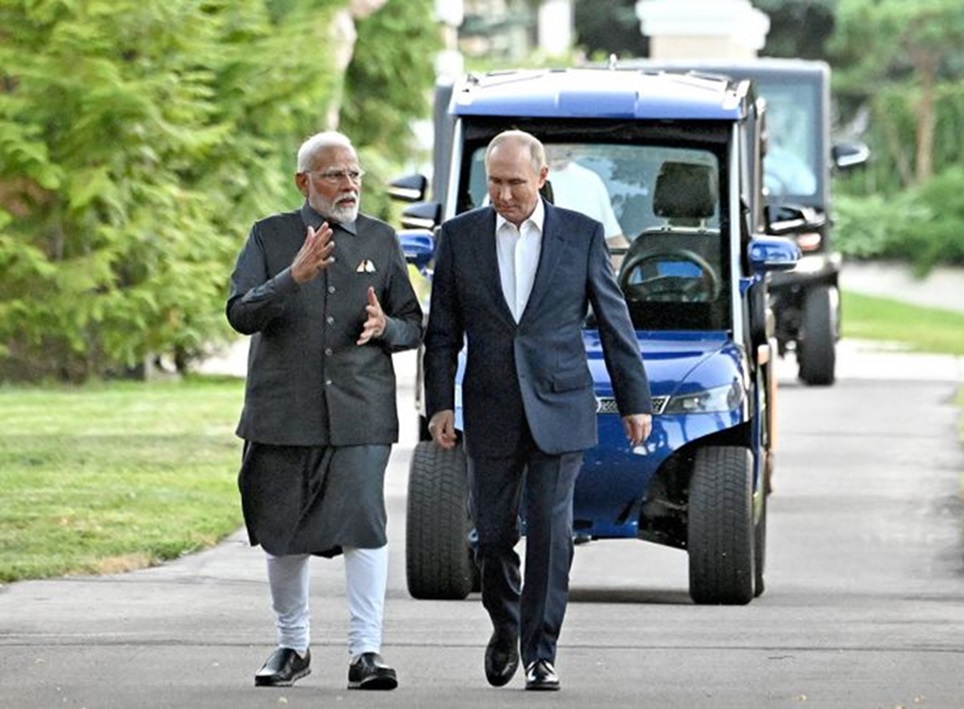Japan has launched a Space Security Policy Initiative to expand the use of space-based technology to complement the defence requirements towards intelligence gathering for enhancing counterstrike capabilities.
Japan enacted this first-ever space security roadmap with the goal of better utilising the frontier for defence objectives over the next ten years in response to China and Russia’s increasing military exploitation of outer space. The strategy, based on the National Security Strategy revised in December 2022, also commits the administration of Prime Minister Fumio Kishida to promote Japanese defence programmes through the utilisation of private-sector space technology. This is a significant move for Japan as it departs from its previous strategy, which placed an emphasis on the peaceful use of space.
Japanese Prime Minister Fumio Kishida stated, “For the sake of national security, we will dramatically scale up the use of space systems and ensure the safe and stable utilisation of the domain.”
The blueprint’s core pillar is a strategy to increase information-gathering systems in order to improve the efficacy of counter-strike, or enemy base strike, capabilities, which Japan promised to acquire late last year while preserving its war-renouncing Constitution.
Basic Space Policy
“The Basic Plan on Space Policy” is a comprehensive and systematic policy framework for Japan’s space development and utilisation, based on Article 24 of the Basic Space Law (enacted in 2008, Law No. 43), and is regarded as the most essential plan for space exploitation. The National Space Policy Secretariat develops and creates policies, including those taken into consideration by the National Space Policy Committee, to be incorporated into the Basic Plan.
Analysts have noted that, under the guise of “security,” Japan has continued to build up its so-called “counterattack capability” in a number of areas, despite widespread public opinion in Japan that the acquisition of such capability is a clear violation of the country’s policy of focusing solely on defence.
The additions made by the New Space Policy are:
- The security track of Japan’s space programme is now focused on improving the SDF’s fighting capabilities in line with the non-offensive principle and preserving the capacity to employ space-based assets for this purpose in any situation.
- Vowed to increase coordination between the Defence Ministry and the Japan Aerospace Exploration Agency to encourage private firms to develop vital space technologies.
- Balancing East Asian space competition and quickening the merger of the nation’s defence and civilian sectors
- Stable operation of space systems and protection of the region, along with developing technologies in the space industry, directly affect military superiority over competitors.
- Finally, combining several tiny satellites will speed up information transmission, and artificial intelligence (AI) will enhance visual data interpretation technologies.
US-Japan Strengthening
Back in January, the U.S. and Japan made the commitment to defend Japanese satellites as China and Russia step up their military action in the region. DC will extend its security protection to its treaty ally into space. 2+2 affirms cooperation on counterstrike capabilities amid rising regional threats.
In a joint statement released in January, the foreign and defence ministries of the two nations suggested that Article 5 of their security agreement, which obligates the United States to protect Japan in the event of an attack, may be extended to space. The ministers agreed that strikes to, from, or inside space pose a clear threat to the alliance’s security and acknowledged that, under some conditions, such attacks may trigger the application of Article 5 of the Japan-US Security Treaty. And now the new Space Policy of Japan comes with backing.
The latest move in the escalating otherworldly competition between superpowers will see the deployment this summer of a network of satellites by the United States Space Force and JAXA to monitor Chinese or Russian spacecraft that may be able to harm or destroy orbiting objects. With the new road map of Japan, this companionship will be trouble for Chinese satellites.
According to the Space Force and experts, the network, code-named “Silent Barker,” would be the first of its type to support ground-based sensors and low-earth orbit satellites. In what is referred to as a geosynchronous orbit, the satellites will be positioned roughly 22,000 miles (35,400 km) above the Earth and rotate at the same rate as the planet.
China and Russia’s Outlook
The military is becoming more active in space. In order to prevent other countries from using space, China and Russia have stepped up their efforts. They have interfered with satellite communications and developed missiles and laser weapons that can destroy satellites. Satellite communications are crucial for firing missiles, controlling drones, and determining troop placements on the battlefield, as Russia’s invasion of Ukraine has demonstrated.
China and Russia, which are increasing their military presence in space, may view this as a possible threat. In response, a research facility affiliated with the Japanese space agency has prohibited Chinese and Russian researchers in order to safeguard important technical data that may be exploited for military objectives.
A decommissioned Chinese spacecraft was successfully towed hundreds of kilometres into a higher orbit by China’s SJ-21 satellite, which was launched in 2021. A robotic arm on another Chinese spacecraft, the Sijian-17, “could be used for grappling other satellites,” according to a 2022 Defence Intelligence Agency study. This could prove hazardous for the Japanese space domain and its satellites.
The US-Japan alliance is anticipated to be significantly impacted by Japan’s new space strategy. As anxiety about China’s threat grows, the US and Japan have stated that they are expanding their security partnership into space in an effort to thwart satellite assaults. The new space race’s developing politics are heavily influenced by Japan and its relationship with the United States. The US is determined to establish an international space system that is centred on itself as a major power.
The US needs partners and allies to implement it in the current geopolitical environment. According to speculation, Japan and the U.S. military alliance may be the first to undertake defence cooperation in space, which might have significant strategic ramifications for the alliance with the new space policy.
Title image courtesy: World Politics Review
Disclaimer: The views and opinions expressed by the author do not necessarily reflect the views of the Government of India and Defence Research and Studies







